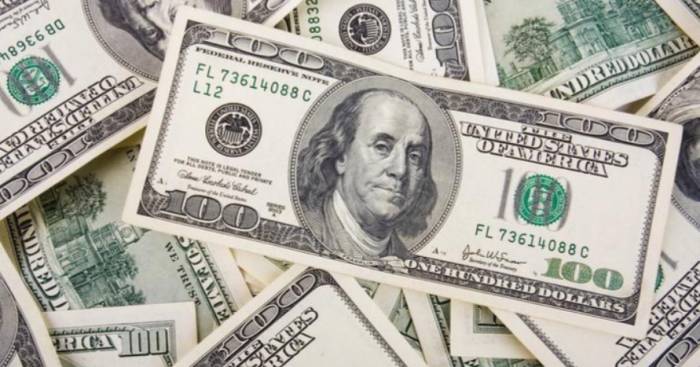"U.S. Debt Defaults Loom": Bonds Plunge, Yields Hit 4%
The United States has issued $31.4 trillion in government debt, which far exceeds the current annual GDP of the country. Consequently, holders of U.S. debt are very concerned that the U.S. might default on its obligations.
It appears that the U.S. is now on a path towards defaulting.
It is evident that the U.S. has begun to stir up public opinion to lay the groundwork for a potential bond default. American economists have started to suggest that some U.S. debt may not need to be repaid!
01. It might not be repaid
Recently, a renowned American economist and Nobel laureate, Paul Krugman, shared his views on U.S. debt. He believes that the U.S. should directly abolish the debt ceiling to prevent the Republican Party from using it as leverage to force concessions from the White House.
At the same time, this 2008 Nobel laureate in Economics also pointed out that the U.S. could pay interest by issuing new debt and could even raise funds through new debt issuance to repay the principal of old debts. Moreover, although the U.S. has issued $31.4 trillion in government bonds, it does not actually need to repay all of it in full.
He cited the United Kingdom as an example, noting that the UK has not yet repaid the debts incurred after the Napoleonic Wars.
Due to the ongoing debt ceiling negotiations without any results, Krugman's statements could very well be a way to create public opinion on behalf of the official stance.
02. The Federal Reserve's sell-offAccording to the U.S. Department of the Treasury, if Congress and the White House fail to reach an agreement, the earliest default on U.S. debt could be June 1st.
It is well known that holding U.S. debt may result in significant losses, so countries are selling off U.S. debt. However, it is surprising that the largest seller is not China or Japan.
What is astonishing is that the Federal Reserve itself is also selling off a large amount of U.S. debt. Over the past year, the Federal Reserve's balance sheet has seen a substantial reduction of $550 billion in U.S. debt holdings.
As the Federal Reserve is the central bank with the most U.S. debt holdings globally, it has begun to shrink its balance sheet to mitigate potential losses.
03, U.S. debt plummets

However, the Federal Reserve may have been too presumptuous, always assuming that other central banks would take over when it sold off its holdings. Unexpectedly, countries are continuing to sell off their U.S. debt.
The latest news is that the yield on the 10-year U.S. Treasury bond has once again broken through 4%.
The last time it broke through 4% was in March when several banks went bankrupt simultaneously. This time, it has risen again, breaking through 4%, and compared to the lowest point in early May, the yield on U.S. debt has climbed significantly.
There is only one possibility: the scale of selling off U.S. debt is far greater than the scale of buying U.S. debt.
A few days ago, the U.S. Department of the Treasury just provided data indicating that in March, central banks around the world were increasing their holdings of U.S. debt. It seems that was just an illusion.04, The Opportunity for the Renminbi
This presents a rare and significant opportunity for the Renminbi.
While China's economy continues to grow, efforts are also being made to enhance the international usage and influence of the Renminbi.
Amidst the recent intensification of de-dollarization, the international status of the Renminbi has seen a qualitative improvement. Data indicates that the proportion of Renminbi used in China's trade settlements has exceeded that of the US dollar by one percentage point.
In reality, China has always been striving to elevate the international status of the Renminbi, but past efforts did not yield noticeable results.
The primary reason the US dollar has been consistently referred to as the global mainstream reserve currency is due to the strong comprehensive economic and political power of the United States. Additionally, the US financial markets and international trade environment have been relatively stable, maintaining a dominant position.
The significant enhancement of the Renminbi's international status is mainly attributed to the US sanctions against Russia and the global acknowledgment of the weaponization of the US dollar, which has greatly propelled the internationalization of the Renminbi.
Now, as the US economy suffers from the backlash of continuous interest rate hikes, with countries selling off US debt, the status of the US dollar has plummeted.
If the US were to send out a signal of "defaulting" at this time, the Renminbi could potentially take a significant leap forward.
Post Comment